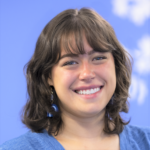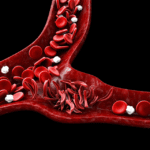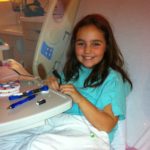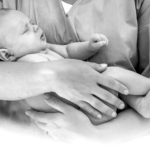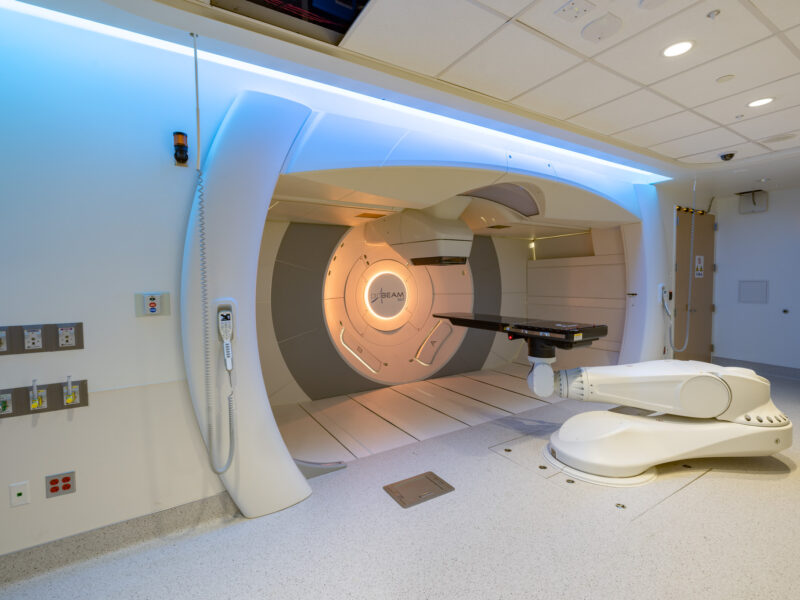Featured Researcher — Susan Creary, MD, MSc
Featured Researcher — Susan Creary, MD, MSc https://pediatricsnationwide.org/wp-content/themes/corpus/images/empty/thumbnail.jpg 150 150 Natalie Wilson Natalie Wilson https://pediatricsnationwide.org/wp-content/uploads/2021/06/Natalieheadshot3-2.png- May 05, 2021
- Natalie Wilson
Susan Creary, MD, MSc, is a principal investigator in the Center for Child Health Equity and Outcomes Research at the Abigail Wexner Research Institute at Nationwide Children’s Hospital, a physician in the Hematology, Oncology and Blood and Marrow Transplant (BMT) Clinic at Nationwide Children’s, and an associate professor of Pediatrics at The Ohio State University.
Dr. Creary’s current research projects all allow her to engage with and collaborate with other centers and disciplines to improve care for children with sickle cell disease (SCD).
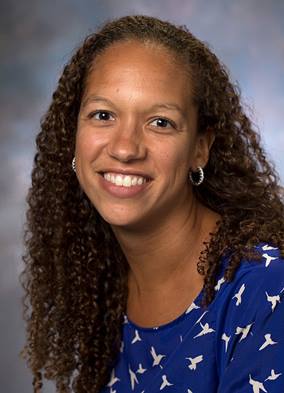
Although SCD, the most common inherited blood disorder in the United States, affects individuals of all racial and ethnic identities, the disease occurs most often in minority populations, affecting one in every 365 Black or African-American births, according to the Centers for Disease Control and Prevention (CDC). Well-documented health disparities among racial and ethnic minority groups in the United States are directly related to poor outcomes associated with SCD. Dr. Creary’s research aims to address these health disparities, improve care for these patients and improve their health outcomes.
One project aims to improve hydroxyurea medication adherence among children with SCD, using technology-based interventions. Hydroxyurea is the primary disease-modifying medication available for people with SCD.
Other projects include exploring shared decision making around whether or not to initiate hydroxyurea and how parent education interventions might close knowledge gaps and improve caretakers’ understandings of sickle cell trait and SCD treatment. In collaboration with Leena Nahata, MD, an endocrinologist and principal investigator in the Center for Biobehavioral Health, she is conducting a research project on reproductive health and knowledge about fertility among adolescent males and their caregivers. Both SCD and the medications used to treat SCD can have an impact on fertility. Finally, in collaboration with Benjamin Kopp, MD, a pulmonologist and principal investigator in the Center for Microbial Pathogenesis, Dr. Creary is examining the effects of the combined SCD-pulmonary clinic at Nationwide Children’s, which was launched seven years ago to address access barriers and comorbid pulmonary and SCD complications, on patient outcomes.
Dr. Creary received her medical degree from Indiana University School of Medicine. She completed her pediatric residency at Riley Children’s Hospital in Indianapolis and her pediatric hematology/oncology fellowship at UPMC Children’s Hospital of Pittsburgh while also receiving her Master of Science in Clinical Research at the University of Pittsburgh in 2013.
Read on to learn more about Dr. Creary, her work and her journey to her research career.
How did you land in your field?
The decision to pursue pediatric hematology and research was more an evolution than anything else. When I was in undergrad at Notre Dame, I was premed because it seemed like what I should do as someone who always liked math and science. But I didn’t think I wanted to go to med school. My uncle was a surgeon, and while I enjoyed seeing patients with him when I had the opportunity to shadow him, being in the operating room didn’t interest me. However, once I had some additional experiences seeing other types of physicians, I realized there were lots of other things I really liked, such as understanding patients’ conditions and really getting to know their stories, so I applied to medical school.
Once I was there, it was clear to me that I had made the right choice. I discovered something new that interested me every year. I liked learning about every organ system. During my pediatrics residency, I liked taking care of children on the hematology/oncology unit of the hospital. I also really enjoyed seeing children grow up and working in the underserved continuity clinic.
I decided hematology/oncology connected all these different interests, and I decided to pursue a hem/onc fellowship. Blood goes everywhere in the body — the brain, the lungs — and can affect every organ system. While I was specializing in hematology, I got to have partnerships with colleagues who were experts in all these other organ systems.
Finally, by deciding to focus on caring for children with sickle cell disease, I was also able to provide care for an underserved patient population and to watch them grow up over time.
How did you decide to pursue a career in research?
I thought my main interest would be clinical care. My dad was an academic in chemistry, so I’d only ever seen that kind of research, and it really hadn’t interested me. But towards the end of my fellowship, a seminal paper came out about hydroxyurea that showed it prevented many complications in children with sickle cell disease (SCD) and that it had potential to alter the course of their disease. But this medication has challenges: it takes months to see its benefits, and it’s hard to take it every day. And if a patient forgets to take it for a month, we might not see the effects of that until months downstream when they show up in the emergency department. Most children with SCD are well most of the time, but complications can be sudden and really devastating.
This paper’s publication timed perfectly with the start of the last two years of my fellowship, which were more research driven. I had the opportunity to do research with the patients that I was seeing and to help them adhere to this medication daily — another way of improving their care.
Research isn’t all done in a lab with pipettes.
I really loved it from the beginning. I learned that through research, I had so much potential to really impact these issues on a much broader scale. Rather than just putting Band-Aids on individual patients’ problems, I could affect both the patients I was seeing and patients with SCD that I would never see. I’m alright not seeing patients all the time now since I know that I’m still having that impact, and that my time seeing patients all relates back into the research that I conduct.
How does your research serve our patients and our community?
For one of my research projects, we’re exploring a smartphone-based intervention to encourage children with SCD take their medication regularly.
The app works by sending patients medication reminder alerts and having them do video-observed therapy — they take a short video of themselves taking their medication, which allows our team to confirm that they took it and send them positive feedback and encouragement. Adherence goals are also incentivized, so patients get monetary reinforcement as well. If patients can set up good behavioral habits early, that hopefully leads to improved end organ health and lifelong adherence.
I hope that we can further refine our smartphone intervention, test it on a wider scale through a multi-center trial, and then implement it to help as many patients as possible. We also hope to provide access to smartphones as part of our research. SCD primarily affects an underserved and minority population, and underserved minority patients can have poorer access to smartphones and the internet, in addition to poorer access to care. The cost of providing patients with devices to help them remember their medication, connect them with their clinical teams and better prevent complications may have the potential to offset the cost of treating those complications when they arise. Addressing access issues will allow for more patients to be on a medication that alters the course of their disease.
What does research mentorship mean to you?
When I interviewed for my position at Nationwide Children’s, I met my current mentors, Deena Chisolm, PhD, and Sarah O’Brien, MD. I’ve received so much support from them since then. They always help me find great research opportunities and submit the best grant applications and research publications that I can. They’ve also helped me through challenging times.
Fun Facts About Dr. Creary
What would be your dream job if you didn’t work in research?
Growing up, I always wanted to be an astronaut, but I’m not sure that’s something I could actually do — I get motion sickness! My dad was a college professor, and so if I wasn’t a physician, I’d probably do something more academic — college-level teaching, like he did.
What’s your favorite food?
I really like pizza, specifically “pizza with flair.” I like Dewey’s, and Harvest Pizzeria has a lot of fun toppings.
Favorite band/music?
I don’t have a favorite right now — but I do have a 3-year-old son, and we listen to everything from the Backstreet Boys to Disney to musical soundtracks.
Favorite way to relax?
I love to run (or to do really any form of exercise). And being on the water, being outside in the sun with family and friends at the beach or on the lake, and going on trips to places with beautiful beaches. I also like to cook, especially if someone else has chosen the menu.
What talent would you most like to have?
I’d love to be able to sing. Whitney Houston sang with so much talent and so effortlessly — or, at least, she made it look effortless! Maybe my dream job would be singing if I could sing as effortlessly!
Where would you most like to travel?
Since the pandemic has affected travel for so long, I’m excited to travel anywhere, especially internationally — South America and Portugal have both been really appealing to me recently.
Because of their impact, I have a growing interest in mentorship. I recognize how important mentorship has been to me, and I want to pay it forward and support more young people as they foster their professional development and growth.
Plus, it was a late evolution for me to understand that research isn’t always done in a lab with pipettes. I didn’t know about the ways I could use clinical observations to inform my research, or that I could see the direct applications of that research on my patients, until later in my career. Mentorship is a wonderful way to expose others to those exciting opportunities. For example, my current research assistant, who is considering graduate school, may now be moving in a different direction because of our work. The research we do allows people who also like to see patients to experience a nice blend of their interests.
Through mentorship and research, we can affect patients on a much broader scale. I see it as a spiderweb effect — there’s my reach as a clinician, and then my reach as a researcher. And if I inspire more people to pursue research, then that can make an even bigger impact.
About the author
Natalie is a passionate and enthusiastic writer working to highlight the groundbreaking research of the incredible faculty and staff across Nationwide Children's Hospital and the Abigail Wexner Research Institute. Her work at Nationwide Children's marries her past interests and experiences with her passion for helping children thrive and a long-held scientific curiosity that dates back to competing in the Jefferson Lab Science Bowl in middle school. Natalie holds a bachelor’s degree in sociology from Wake Forest University, as well as minors in women's, gender & sexuality studies and interdisciplinary writing. As an undergraduate student, Natalie studied writing and journalism, engaged with anthropological and sociological research with a focus on race and ethnic relations, served as executive editor for the student newspaper, the Old Gold & Black, and gained marketing experience as an intern for a nonprofit entrepreneurial incubator, Winston Starts, as well as by working for Wake Forest University School of Law Office of Communication and Public Relations and its Innocence and Justice Clinic.
-
Natalie Wilsonhttps://pediatricsnationwide.org/author/natalie-wilson/
-
Natalie Wilsonhttps://pediatricsnationwide.org/author/natalie-wilson/
-
Natalie Wilsonhttps://pediatricsnationwide.org/author/natalie-wilson/
-
Natalie Wilsonhttps://pediatricsnationwide.org/author/natalie-wilson/
- Posted In:
- Featured Researchers



